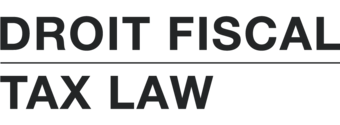
Photo by Andrea Piacquadio
Two taxpayers were reassessed, a corporation and its sole shareholder. The shareholder sold financial products and life insurance policies through his corporation although, for some provinces, he had to conduct business as a sole proprietor due to provincial regulations.
The corporation was reassessed for the 2007 and 2008 taxation years. The shareholder was reassessed for the 2007, 2008 and 2009 taxation years. 2007 was outside of the “normal reassessment period” so the Canada Revenue Agency (“CRA”) had to rely on subsection 152(4) of the Income Tax Act (“ITA”) to reassess that year. Further, the CRA also assessed gross negligence penalties.
The thrust of this appeal deals with disallowed expenses at the corporate level, and shareholder benefits, unreported income and interest deductibility at the individual level. Whereas the shareholder had been a financial planner for 23 years, including 15 years specializing in retirement, tax and estate planning, he ignored the tax rules. That is the underlying sentiment that came out of the evidence and the testimonies given in court, so much so that it wasn’t hard for Randall S. Bocock J. to find that the CRA was justified to reassess 2007 and impose penalties.
Regarding the expenses claimed by the corporation (that remained in contention), Bocock J. found that most of the expenses were personal and therefore non-deductible. To that effect, he remarqued: “GH’s process of expense deduction for JFI is best described as probing, exploratory and iterative, a veritable “run it up the flag pole and see if it flies.””[1] Later in his judgment, Bocock J. also stated: “On balance, the Court will not conjecture, based on the evidence, that there was a business or income earning purpose to the bonuses, particularly in light of the surrounding circumstances reflecting their incurrence.”
At the shareholder level, the expenses paid by the corporation were treated as shareholder benefits (except for a few expenses which were justified). Unreported salary was added to income. The interest expenses were disallowed.
It is worth noting that because the expenses were denied at the corporate level and shareholder benefits were assessed at the individual level, there was double taxation, a possible outcome to be aware of when dealing with shareholder benefits. A corporation is a separate person under the law. For tax purposes, there is a clear dividing line between the corporation and its shareholders. Any blurring of that line comes with its risks and perils.
The factual underpinnings of a case will influence the Court’s appreciation of the facts and the parties’ respective positions. Obviously, the Court had little sympathy for the taxpayers in this case.
[1] Para. 43.
